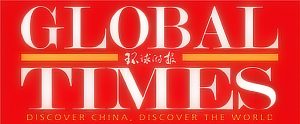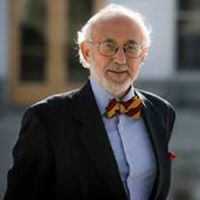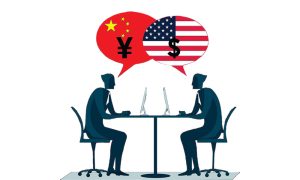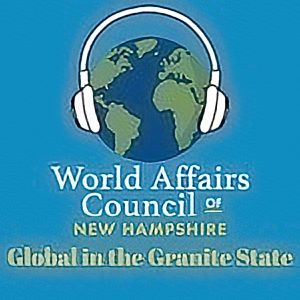PolarisLive: Upcoming Events
Thank you for your support of Polaris-Live.com “United States and China in the World”.
March
March 20th 11:00 AM EST – Jorge Heine – Role for Latin America In U.S.-China Competition?
Ambassador Jorge Heine is a lawyer, IR scholar and diplomat with a special interest in the international politics of the Global South. Ambassador Heine is Research Professor at Boston University’s Frederick S. Pardee School of Global Studies and Interim Director of the Frederick S. Pardee Center for the Study of the Longer-Range Future.
The global landscape is shifting as the power dynamics between Latin America, U.S., and China continue to evolve. These changes are reshaping the world order and influencing international relations on a grand scale.
Will the the countries of Latin America with a population of over 430 million people, have to choose between the two superpowers? How will China and the U.S. fine-tune their strategies to accommodate the impact of technology and the emergence of the global south? What will be the impact of this shift in global geostrategic balance on the existing Western-led global order?
Watch it Live
April
April 2nd 9:30 AM EDT – Luv Puri – India’s Bollywood elections – Donald Trump’s envy!
India’s Bollywood elections must be the envy of Donald Trump — Lock up the opposition and freeze its bank accounts–the “largest democracy in the world” goes to the poll in a Bollywood inspired election that is about to roll across India.
A frank appraisal of a fast changing India from an international, experienced Indian observer.
Luv Puri has been working in the field of International Affairs for two-decades, both as a practitioner and an analyst. He was with the UN Department of Political Affairs for ten years, during which period he worked at the highest levels of multilateral diplomacy, including as part of the Secretary-General’s Good Offices. He started his career working with the widely-read and respected daily, The Hindu where he reported on conflict areas with a focus on issues related to Human Rights for several years. In 2006, he won the European Commission Award for Human Rights and Democracy.
At present, he is a columnist on International Affairs for several widely-read publications (authory.com/Luv Puri). He has authored two books, including -“Across the Line of Control” -, published by Columbia University Press. and was a Fulbright Scholar from 2008-10. He did his Masters in New York University.
Watch it Live
April 16th 9:30 AM EDT – Aminda Smith – Is China’s “Communism”, really Communism?
The Chinese Communist Party governs the country from each village and city building to the very top of the country’s power structure. The CCP has the authority to preside over the government’s decisions at both central and local levels. Unlike the Soviet Union, however, China is largely a free-market economy that produces as many billionaires as does the U.S. How well does the U.S. understand the CCP? Does this lack of understanding prohibit better relations between the two superpowers?
Dr. Aminda Smith is Associate Professor in the Department of History at Michigan State University. She is a historian specializing in modern Chinese history with a particular interest in the social and cultural history of Chinese Communism. She serves as co-director of the PRC History Group, an international scholarly organization dedicated to increasing research and knowledge on the People’s Republic of China. Dr. Smith has written widely on the global histories of the Chinese Communist Party and Maoism.
Watch it Live
May
May 2nd 12:30 PM EDT – FPA-Burkle Center/UCLA dialogue on U.S. – China Relations
In a pivotal series of discussions underwritten by the Annenberg Foundation, that could reshape U.S.-China relations, American and Canadian experts, on both sides of the political spectrum, convened in Los Angeles last week in the first ever Burkle Center/UCLA and Foreign Policy Association conference. Success in building consensus was not guaranteed, but was accomplished. We speak with the Director of the Burkle Center and a key participant to understand why and highlight key recommendations.
Professor Kal Raustiala
Promise Institute Distinguished Professor of Comparative and International Law Director & UCLA Ronald W. Burkle Center for International Relations.
Mr. Chris Fenton
Founder, Fenton International Business Strategy & Communications.
Watch it Live
May 14th 9:30 PM EDT – T.V. Paul – India, Perpetual Great Power in Waiting?
Along with the meteoric rise of China, there has been much interest in the emergence of India, as a rising power with one of the fastest growing economies in the world. The rapidly developing US-China rivalry gives India an added importance in world politics today as India is perhaps the only swing power that can help balance China’s potentially aggressive rise in the Indo-Pacific region. That, at least, is what the U.S. believes and has made this goal one of its central strategic planks for the Indio-Pacific.
Is this American vision but a dream? Given India’s enduring friendship with Russia as demonstrated by its refusal to toe the U.S. line in the Russia-Ukraine war and its growing trade relationship with China in spite of the Himalaya military clashes between the two Asian nations.
Watch it Live
July
July 11th 9:30 PM EDT – Ankit Panda, U.S. & China – Wooing the Global South
Ankit Panda is the Stanton Senior Fellow in the Nuclear Policy Program at the Carnegie Endowment for International Peace. An expert on the Asia-Pacific region, his research interests include nuclear strategy, arms control, missile defense, nonproliferation, emerging technologies, and U.S. extended deterrence.
He has consulted for the United Nations in New York and Geneva on nonproliferation and disarmament matters, and has testified on security topics before the U.S. Senate Armed Services Committee and the congressionally chartered U.S.-China Economic and Security Review Commission.
Watch it Live
July 23rd 9:30 PM EDT – Jeffrey Reeves, NATO Should Stay out of Asia
Since identifying China as a “systemic challenge” in its 2022 Strategic Concept, NATO has been pursuing closer strategic and operational relations with Japan, Australia, South Korea, and New Zealand, collectively known as its Indo-Pacific Four (IP4) The prospect of a NATO+IP4 security regime is deeply problematic. Asian states, including those with close ties to Europe and the United States, would likely see a formal NATO+IP4 security structure more as a Western provocation rather than a defensive alliance.
Jeffrey Reeves is Associate Professor at the U.S. Naval War College, Naval Postgraduate School, and Senior Washington Fellow at the Institute for Peace and Diplomacy. He specializes in Asian security, political economics, strategy foreign policy, and economic statecraft. Published extensively in leading academic journals including China Quarterly, Washington Quarterly, International Relations of the Asia Pacific, and Journal of Contemporary Chinese Studies.
Watch it Live
September
September 3rd 9:30 PM EDT – Pamela Crossley, U.S. Presidential elections and China, Great Expectations?
The 2024 Presidential election in the United States is full of profound unknowns, especially for the world’s other superpower: the People’s Republic of China.
Does China’s centuries long history offer clues to how it might be preparing to deal with the unpredictable turn of events that the American system has thrown up. A wrong guess in China will have profound consequences for China, for China-U.S. relations, and for the world.
Professor Pamela Crossley is one of the world’s leading historians of modern China, northern Asia, and global history. She is a specialist in the history of China’s last empire, the Qing, but has written books on early modern and modern Chinese history, Central Asian history, and global history. Her work is widely published both in scholarly journals and in newspapers, and magazines for the general public. Crossley is author of The Wobbling Pivot: China since 1800: An Interpretive History (2010), as well as influential studies of the Qing dynasty (1644–1911) and leading textbooks in global history.
Watch it Live
September 10th 9:30 PM EDT – Shehzad Qazi, China’s Economy plans for U.S. Elections
How are China’s economic policy makers strategizing to prepare for the coming change in U.S. Administrations and how are they reacting to the dire forecasts from U.S. investment banks and market makers? How accurately do U.S. forecasters understand the state of China’s economy? Is the media focus on “overcapacity” warranted. Not too log ago China was described as the “mother of all investment opportunities.”
Mr. Qazi is the managing director of “China Beige Book.” As the firm-wide operations lead, Shehzad oversees product innovation, client services, new business acquisition, and corporate strategy at China Beige Book International.
Since 2012, Shehzad has helped develop data collection for the China Beige Book™ platform and supervised the analytics team. During this time, he has also designed innovative services and macro strategic and sectoral products for the firm’s financial markets and corporate clients.
Watch it Live
September 17th 9:30 PM EDT – Marc Chandler, China’s “overcapacity” paradox
One of the impressive sounding but dense buzzwords over the last year has been “overcapacity.” A constant refrain that China is unfairly overproducing and flooding the world with below cost goods and destroying jobs in the West. Western countries, led by America, have responded by resorting to more protectionist policies. But is the assumption and the strategy sound? Aren’t affordable goods good for people?
Mr. Chandler is Managing Director and Chief Market Strategist for Bannockburn Global Forex. He has covered global capital markets for more than 30 years.
Watch it Live
September 24th 8:30 PM EDT – Cameron Johnson, Business of U.S. and China is still Business
Is the economic picture in China as dire as the media reports? Why are rich Chinese leaving the country for safer havens in the West. How difficult is it for U.S. firms to set up a business in China. Is the geopolitically tense situation between the world’s two biggest economies causing lasting damage to the business relationship? What is polling of U.S. businesses in Shanghai and around China telling us about the future of the business relationship.
Mr. Johnson has 20+ years of management experience across various industries in China and has lived and done business in China for 20 years, in Beijing, Shanghai, Changchun, and Chongqing.
Watch it Live




